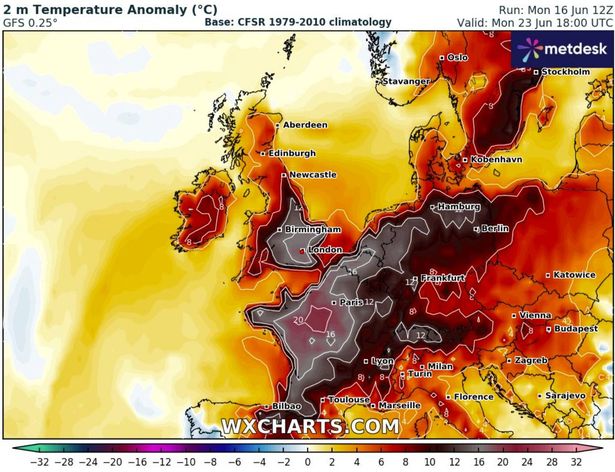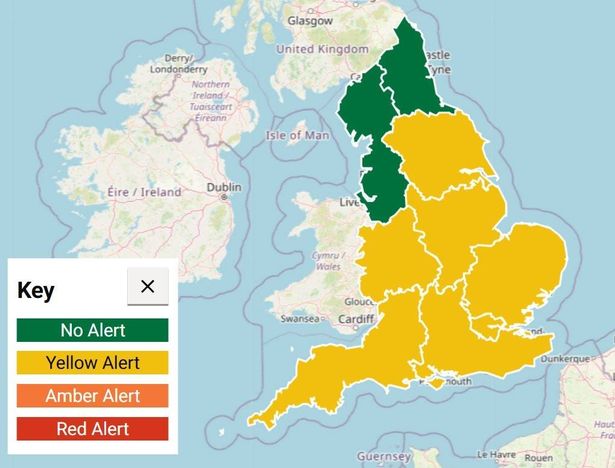Experts have issued a warning to those taking a common type of medication
09:49, 18 Jun 2025Updated 12:39, 18 Jun 2025
 (Image: Getty)
(Image: Getty)
As the UK braces for a heatwave, experts have issued a warning to Brits who are on a common type of medication.
Following several days of scorching weather, temperatures are predicted to escalate even further in the coming days, peaking at a sizzling 33C on Sunday afternoon, say forecasters.
The Met Office confirmed yesterday that the persistent warm air from continental Europe means it’s now likely that vast areas of the UK will meet the official heatwave criteria by the weekend. This news will no doubt be welcomed by many up and down the country.
However, for the estimated 8.7 million people in England who take antidepressants, these extended periods of hot weather could potentially have adverse effects, warn experts.
Mental Health UK explains that certain antidepressants, such as SNRIs, antipsychotic medication, and some SSRIs, can impact body temperature regulation and make you more susceptible to heat.
This includes antipsychotic medications like amisulpride (brand name Solian), aripiprazole (Abilify), clozapine (Clozaril, Denzapine, Zaponex), lurasidone (Latuda), olanzapine (Zypadhera, Zyprexa), paliperidone (Invega, Xeplion), quetiapine (Seroquel, Seroquel XL), risperidone (Risperdal, Risperdal Consta), chlorpromazine, flupentixol, and haloperidol, reports the Mirror.
Common antidepressants, including tricyclics like amitriptyline and SSRIs such as fluoxetine, may interfere with body temperature regulation.
Mental Health UK highlights on their website that disrupting temperature control is often a noted side effect of these medications, advising patients to review their medicine’s leaflet if they’re concerned.
Dr Sameer Sanghvi, GP and Clinical Technology Lead at Lloyds Pharmacy Online Doctor, said: “Common antidepressants can all stop the temperature regulating area of the brain functioning as it should.
“Serotonin-noradrenaline reuptake inhibitors (SNRIs) and selective serotonin reuptake inhibitors (SSRIs) are some of the most commonly prescribed antidepressants.
“However, SNRIs are known to cause excessive sweating and thus dehydration, while SSRIs have been linked to heat intolerance and heat stroke.”
Despite the associated risks during hot weather, Dr Sanghvi emphasised that individuals should not cease taking their mental health medication without consultation and recommended speaking to your doctor before altering any treatments.
He added: “The best thing you can do is take precautions to stay cool: stick to the shade; drink plenty of fluids and avoid alcohol; keep out of the sun between 11am and 3pm; avoid exercising in the hottest parts of the day; and wear loose, breathable clothing.”
The UK Health Security Agency (UKHSA) has issued a yellow heat health alert for the Midlands, South and East England, Yorkshire and Humber, and London.
This alert will be in effect from 12pm today until 6pm on Sunday and serves as a notification to healthcare professionals that adverse temperatures are “likely to impact on the health and wellbeing of the population.”
Such alerts highlight an “increased risk to health” among vulnerable individuals like those aged 65 and above or those with existing health conditions.
 (Image: WXCharts)
(Image: WXCharts) (Image: UKHSA )
(Image: UKHSA )
